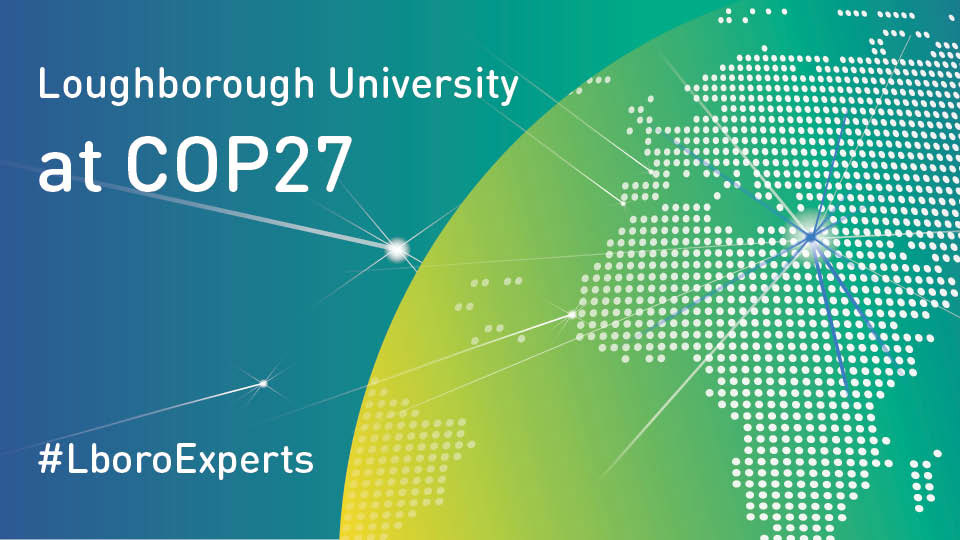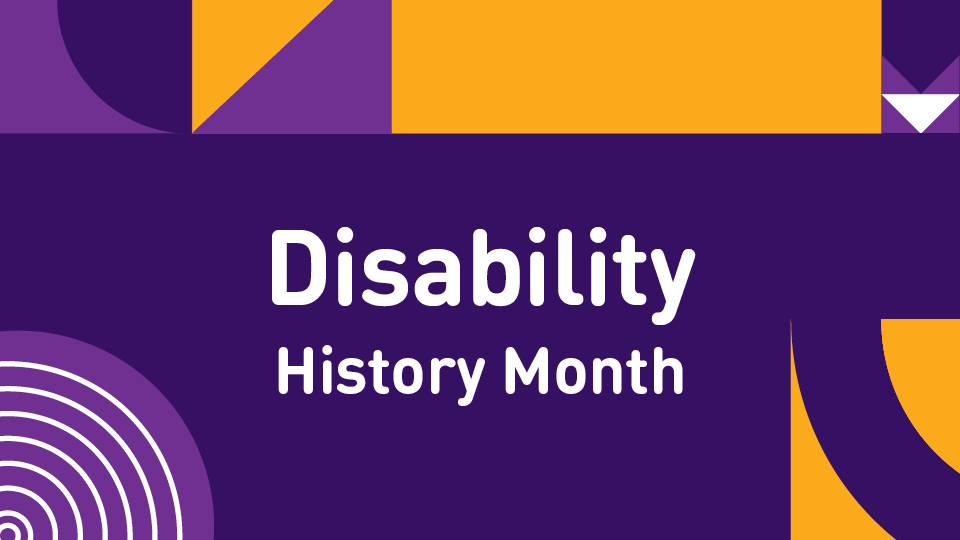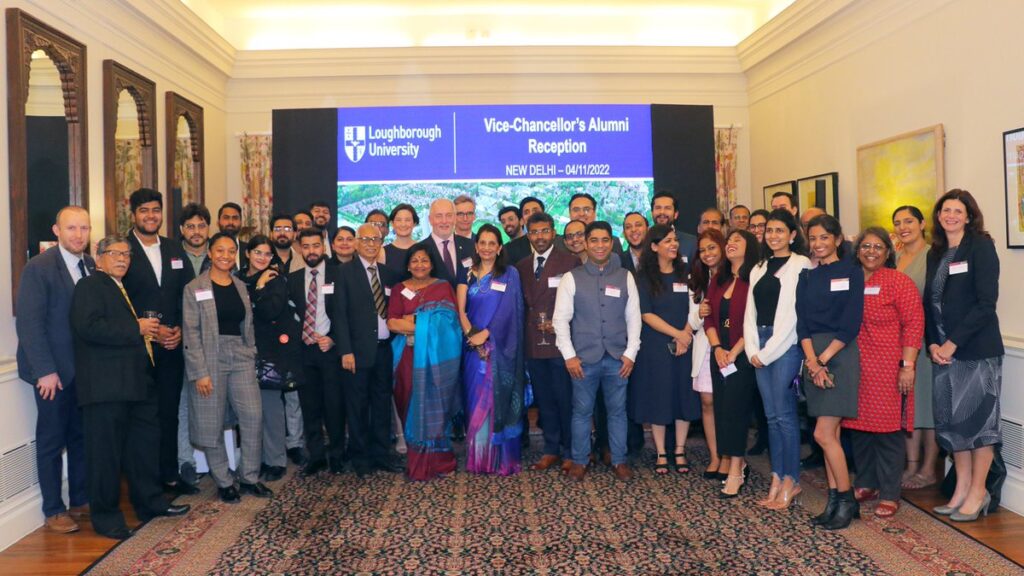From the Vice-Chancellor – November 2022
In my November newsletter: THE Awards, COP27, Disability History Month, building partnerships in India, and the strategic ‘enabling’ projects.
THE Awards
In my September newsletter I let you know that we had been shortlisted for two Times Higher Education Awards, in recognition of the way we responded to the Covid pandemic, and successfully managed its impact on our communities, during the 2020-21 academic year.
The awards were presented earlier this month, and while we may not have won on the night, we should still be incredibly proud of the fact that we were shortlisted for such prestigious awards, and of the way in which we responded, as a whole community, during an unprecedented period in our lives.
During that academic year, amid widespread disruption across society, we were able to safely welcome back our staff and students to the University, having put in place robust health and safety measures and extensive testing facilities to screen everyone on our campus. More than 90% of our staff and students tested and recorded their results regularly and at the pandemic’s peak almost 20% of asymptomatic testing within the higher education sector was being done at Loughborough.
We were able to deliver two-thirds of our teaching in person. Students who were isolating received free food and laundry, and students’ library books, prescriptions and parcels were delivered to them. We were able to offer safe, Covid compliant student social activities and we were one of the only universities to be able to hold graduation in person in the summer of 2021.
Our response was remarkable and sector leading. The national guidelines issued to higher education institutions on managing students’ return to campus were based on our work. When the Government announced that all schools must conduct asymptomatic testing, we ran a series of national seminars and site visits to Loughborough for more than 300 schools to share best practice on the operation of a safe and effective testing facility.
Our response to Covid, and our success in managing its impact, was truly a University-wide effort. Everyone – our staff, students, their families and all those who visited our campus – pulled together to help us minimise the impact of Covid on our community.
Thank you again for everything you did.
COP27 and our climate research

Some of the most powerful and influential people from around the globe gathered in Sharm El-Sheikh this month for COP27, to discuss the climate crisis and, importantly, the steps the world needs to take to address it.
Among those in Egypt were academics from the University’s Centre for Sustainable Transitions: Energy, Environment, Resilience (STEER), who chaired or spoke at several events at COP27 to showcase their sustainable energy research that has the potential to benefit millions worldwide.
Professor Ed Brown, the co-director of STEER and MECS’ Research Director, co-led a session in the Sustainable Development Goal 7 (SDG7) Pavilion, the main hub at COP focused on how to unite global efforts on energy, climate and development. The session brought together utility companies, high-level government representatives, development banks and philanthropic organisations to discuss the benefits of a pivot to cooking with electricity.
Alongside COP, the Climate Compatible Growth (CCG) programme, which is part of STEER, hosted a series of Side Events under the theme ‘Africa-Asia: A Just Transition to Low Carbon Development’, bringing together global experts and policy practitioners.
In the run up to COP27, we hosted the Sustainability in Sports Summit at Lord’s Cricket Ground in London, which was attended by world-leading academics, international sports brands, national sports bodies and top business leaders. At the event, sports ecologist Dr Maddy Orr, from Loughborough University London’s Institute of Sport Business, launched a report, commissioned by the UN Environment Programme (UNEP) and supported by the International Olympic Committee (IOC), into how sports can act to protect nature.
It is hoped the report will be a step towards an international action campaign to coordinate sports’ response to the triple planetary crisis (the three interlinked issues of climate change, pollution and biodiversity loss) in the lead up to the Paris 2024 Olympic and Paralympic Games and throughout the UN’s Decade On Ecosystem Restoration initiative.
In addition to the report launch, the Sustainability in Sports Summit included panel sessions with representatives from UNEP, the IOC, the International Union for Conservation of Nature, EY, Wimbledon and Chelsea Football Club. We were delighted to be able to bring such high-profile organisations together for this important discussion.
Through opportunities such as these, our research and innovation, and the partnerships we develop, which align with our strategic theme of Climate Change and Net Zero, we have a real opportunity to make a tangible, positive difference.
Disability History Month

Each year Disability History Month, which runs from mid-November to mid-December, allows us to learn more about the different types of disability and to showcase the invaluable contributions made by people with visible and invisible disabilities.
Throughout the month there are several events taking place on our campus. Full details are available on the dedicated Disability History Month website. You’ll also find links to news articles and some key resources, including the Staff Inclusivity Group.
I would, however, particularly like to draw your attention to the ‘Staff and Student Voices’section of the website. Members of staff from the University have shared their personal experiences of having a disability in a new video. Please do take a look. Hannah Lancaster, one of our Psychology students, reads a selection of poems she has written about the impact that concussion has had on her, and the students’ Disability Support Network has launched its #DontDisMyAbility campaign which aims to celebrate the experiences of students through videos and blog posts.
Engaging with Disability History Month enables us to play an active part in creating and sustaining an inclusive environment where we value and respect people for who they are, rather than be defined by the restrictions all too often placed on them.
Building partnership in India

Extending our international engagement and impact is one of the key aims in our University Strategy and at the start of this month I was delighted to embark on my first overseas trip since joining Loughborough, when colleagues and I, including our two recently appointed India Special Envoys, Dr Kirti Ruikar and Professor Bala Vaidhyanathan, travelled to India.
We visited The Indian Institute of Technology (IIT) Delhi and IIT Bombay. Academics from Loughborough and IIT Delhi have been collaborating on research projects for more than 40 years and our visit allowed us to discuss how we might develop our strategic partnership further. Current and future research collaborations were also on the agenda at IIT Bombay.
We visited our partners Bajaj Auto, one of the world’s largest manufacturers of motorcycles and three-wheeled vehicles. Our partnership with them enables employees from the company to study for a master’s degree with us, and I was pleased to be able to present staff who had completed their studies with their certificates.
We met the Makers Lab team at Tech Mahindra, a multinational information technology services company that’s headquartered in Pune, to hear about their innovative R&D projects that are having a positive impact across different parts of Indian society.
I was also delighted to attend two receptions, in Delhi and Mumbai, where I met some Loughborough alumni, one of whom had graduated more than 60 years ago in 1958. The fondness and enthusiasm our alumni still have for Loughborough is truly wonderful and I thoroughly enjoyed hearing their many stories about their time here and learning about their lives since leaving Loughborough.
Visits such as these enable us to reinforce the partnerships we already have and forge new research, innovation and education links for the future.
Strategic ‘enabling’ projects
Our University strategy is an ambitious plan that will direct the activity of all the academic Schools and Professional Services sections over the next ten years. The Strategy’s six aims will be delivered through a series of integrated core plans, and the delivery of those plans will in turn be supported by six ‘enabling’ projects.
These interrelated projects will seek to develop our processes, our digital capabilities, our profile, our approach to compliance and our ways of working to ensure that the right foundations are in place for us to achieve our strategic aims.
Project Enable, which is exploring how we can create the capacity and thinking space staff need in order to work towards our strategic priorities, was the first to launch. It is now progressing several workstreams related to University processes – for example, updates to the assessment format and approach to placement progress meetings are estimated to result in savings of over 5,000 hours for staff; and enhancements to the ethics approvals and fieldwork risk assessment processes will remove thousands of additional checks from the processes, saving both time and resource.
Work is also underway on Project Compliance and Project Workplace. Project Compliance will ensure we can meet our regulatory requirements by making sure staff have the right skills and are empowered to take appropriate action at the right times. This will help to improve our efficiency and effectiveness and reduce bottlenecks that might hinder our progress in delivering the Strategy.
Project Workplace has begun to make changes to the way in which we use the spaces on our campuses. For example, office moves, with the introduction of some hot desking, for Marketing and Advancement and Organisational Development and Change are enabling these teams to work more collaboratively, in line with our Strategy’s core values.
Further information on all these Projects, including Expectations, Reputation and Digital, which are all in their early stages, can be found on the Organisational Development web pages and we’ll provide updates at key points as all the Projects progress.
Vice-Chancellor's Communications
Opinions and comment from the Vice-Chancellor, Professor Nick Jennings

